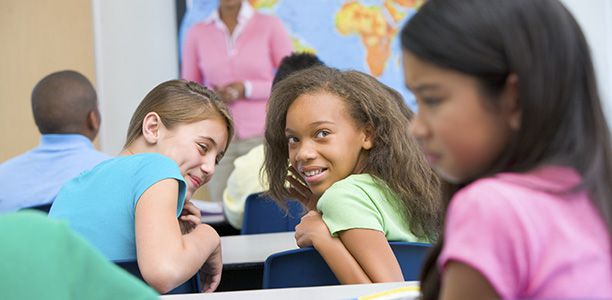A University of Queensland study has shown that families can be more effective in protecting children from bullying than school-based strategies alone.
The findings, to be published in the journal Behavior Therapy, show that parents can actively help their children reduce the impact of bullying.
The results of a randomised control trial of Resilience Triple P, a family-based variant of UQ’s Triple P – Positive Parenting Program, show the program is more effective than efforts of school staff to address concerns about a particular child.
Study author Karyn Healy said the families of primary school-aged children regularly bullied at school participated in the program reported that their children were bullied less and were much less emotionally distressed after the program.
“Australian schools are doing a great job of improving behaviour management,” Dr Healy said.
“However, their current efforts mainly focus on perpetrators of aggression.
“More support is needed for victims of peer aggression and children who are well-behaved but who experience emotional and peer problems,’’ Dr Healy said.
“Resilience Triple P enables parents of children experiencing problems with peers to support their children and address the issues.
“And there is no one more motivated to help a child than the child’s parents.”
Dr Healy co-ordinates the Resilience Triple-P program at UQ’s Parenting and Family Support Centre.
The program combines teaching children social and emotional coping skills and giving parents skills to support their children and work with schools to address problems.
Outcomes of Resilience Triple P trial show:
- Reduced incidents of bullying
- Reduced child distress from peer behaviour
- Reduced child depression
- Child better accepted by peers
- Less aggressive behaviour by child towards peers
- Child liking school more
“Parents want to help – but some things parents do instinctively to help their child may make matters worse,’’ Dr Healy said.
“When parents know how they can help they are very effective in addressing problems.’’
She said the program helped parents teach their children how to strengthen peer relationships and cope with situations emotionally – factors known to be important protective factors against bullying.
Parenting and Family Support Centre Director and Triple P founder Professor Matt Sanders said the study broke new ground in Australia and internationally as it was the first published controlled trial of a family intervention for children who are bullied at school.
“The next step is to investigate how to make it more widely available to the community, because the potential for improved outcomes for young people’s mental health will be considerable,’’ he said.
Dr Healy said feedback from parents involved in the trial had been overwhelmingly positive.
“Part of this might have been because the intervention focuses on what the family can do to improve their child’s victimisation rather than just asking them to wait for the school to solve the problem,’’ she said.
“Parents want to be able to help when their child is distressed. Parents are in an excellent position to provide support when they know how they can help their child.’’
(Source: The University of Queensland, Behavior Therapy)










